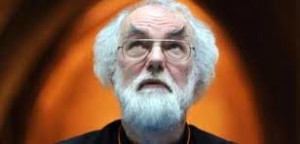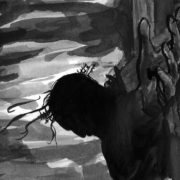 Call it an Anglican communion confusion. Charles Lewis, writing in today’s National Post cover story, tells us that “Canadian Anglicans will hold discussions this spring about whether baptism is necessary for taking part in communion – questioning a requirement of Christianity that has existed for 2,000 years.”
Call it an Anglican communion confusion. Charles Lewis, writing in today’s National Post cover story, tells us that “Canadian Anglicans will hold discussions this spring about whether baptism is necessary for taking part in communion – questioning a requirement of Christianity that has existed for 2,000 years.”
The reason? Numbers are down! The Anglican communion in Canada has been bleeding members for years. According to the Post article, the organization is down to only 500,000 members, whereas it had 1.3 million only decades ago. The hope is that another attempted Anglican change of the rules of the game will attract more fans.
I’m reminded of the wise words of Peter Kreeft, who once noted that the Catholic Church is always being accused of trying to impose some sort of a draconian authority over its members, but the reality is that other Christian communities actually claim far, far more authority for themselves than does the Catholic Church.
How so? Kreeft says that these communities are constantly changing the teachings of Christ to suit their own needs and whims, but the Catholic Church does not – and cannot – do so. She simply doesn’t have the authority. She is not free to alter the teachings of her Lord. Kreeft says that “authority”, after all, means “author’s rights”. We are not the authors of Christ’s teaching, and we are not free to edit it – we’re only the mail carriers. Our job is simply to pass on the teaching of Christ intact to the next generation, unpopular though it may be.
But, even if Anglicans do open up their communion table to all, our Lord won’t be offended in the least. After all, Anglicans haven’t had valid Holy Orders for centuries. They may think they have a valid eucharist, but without validly ordained priests and bishops, it can never be the Eucharist – the true Body and Blood of Christ. Deep down, many Anglicans realize this, just as Cardinal John Henry Newman did before coming home to the Catholic Church. He noted that the leftover, and allegedly consecrated, communion elements from a service were summarily dumped in the trash. He realized that this could not possibly be the Eucharist the early Christians spoke of – no matter who gets to partake of it. And no amount of misguided marketing could ever change that fact.



Hi,
Are the Canadian Anglicans the same as the English ones? If so, I’m not surprised. They broke away because they wanted a change in the sacrament of matrimony and now many are coming back because they can’t accept homosexual “marriages”. Ironic.
Kiran.
Ironically, most other Protestants have a correct view on “the Lord’s Supper”. When they break the bread, they believe that it is either “just a memorial” or “Jesus is with them spiritually (whatever that means) but not actually present”. Essentially, it’s all just a secular ceremony.
It’s the Protestants that are closest to the Catholic Faith like the Anglicans and Lutherans who have it wrong since they assume more than the secular ceremony without any authority to assume such.
It is a living example of how one compromise can lead into a downward spiral of compromises and heresies until there is nothing sacred left. Hopefully more Anglicans will see what this bit of news represents and seeing the light will finally return to the Catholic Church.
“Kreeft says that these communities are constantly changing the teachings of Christ to suit their own needs and whims, but the Catholic Church does not – and cannot – do so. She simply doesn’t have the authority. She is not free to alter the teachings of her Lord.” *This* is why I chose to become Catholic and will be entering the Church at Easter Vigil!
I am particularly grtufeal for the reference to our early history in the article. Deeper meaning of sacraments can unfold through this.I am often puzzled that people are so accepting of infant baptism and question such reception of confirmation and communion. Do we still not yet realize what baptism calls us to? The article’s reference to RC theology and the emphasis on children understanding Eucharist before they are permitted to receive it is off the mark; the meaning of Eucharist is not cognitive, it is pure mytagogy. And this is not only a stage of the RCIA (although we can learn from this) mystagogy is a way of being. As a religious educator I maintain that our teaching efforts ought to be inter-generational. We need to work toward reversing the carrot idea and instill a deeper sense of living eucharistically (i.e as the baptized in the world) and this is something that develops over time from infancy. (see my praytell post in Children for more thoughts on this). If we offer communion (and confirmation for that matter) to infants we do so because as a family this is a way of being in the world, and, the teaching-learning about this way of being takes place over one’s lifetime.Off topic, but important for any discussion, I often see reference to CCD; this is antiquated language. Language is extremely important for meaning; what we mean to reference is catechetical programs for children. More recently referred to as faith formation.